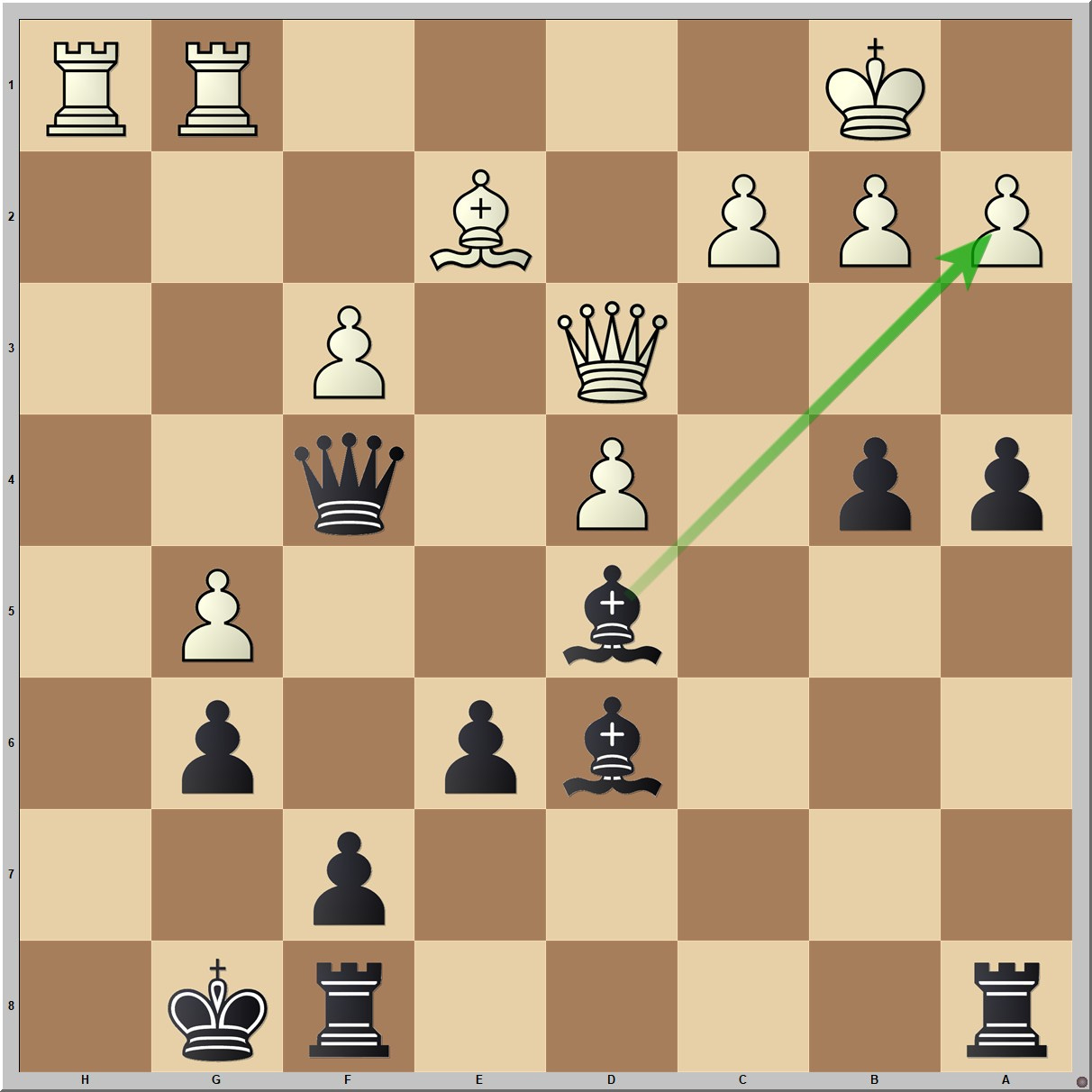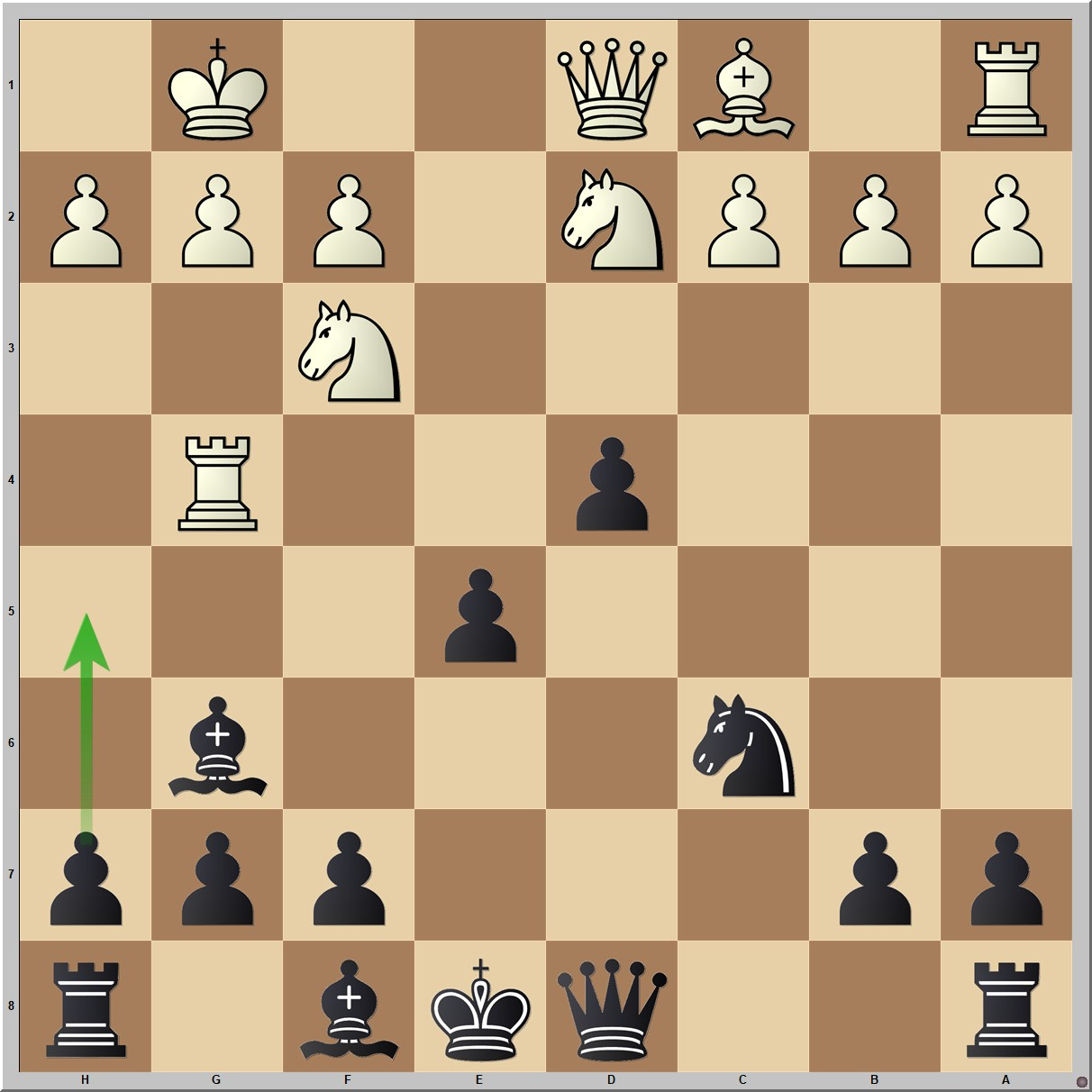They say the hardest thing to do in chess is to win a won position. If we’re being really honest, I’d say winning a lost position is harder. But it’s certainly frustrating to lose a game you should have won. Today we’ll look at three of the most common ways to lose a winning position.
Going pawn grabbing
In this position White tragically played Rxg7 and lost the game immediately after Qxf1#. This is like someone on their way to cash in a winning lottery ticket pausing to pick up a penny in the middle of the street and getting hit by a truck. Ideally, he should have recognized the back rank danger, but perhaps even more importantly, he didn’t need that pawn!
Extra material has severely diminishing returns. In a position where material is equal, snagging an extra pawn is pretty important. That could be the difference between a drawn or winning endgame. But once you’re up a piece, adding an extra pawn on top of it has little value. Barring a disaster, you’re winning anyway, so better to focus on avoiding the disaster.
One good move to secure the win would have been Qb5+, forcing a queen trade, after which White will win easily with a huge material advantage.
Going all-in with an attack
In this position Black was up a bishop for a pawn. White has some hopes of delivering mate on the h-file, but Black has adequate time and resources to prevent that.
In the game, Black decided to sacrifice the extra bishop to kickstart his own attack with Bxa2+. There’s a certain logic to this: you’ve got an extra bishop, so you can afford it, and objectively Black is still doing very well after this move. But I’m reminded of Mr. Burns’ comment after being offered eternal happiness for $1: “I’d be happier with the dollar.”
Well, I’d be happier with the piece. In the starting position, Black is up a piece for essentially no compensation. This is a scenario we should be expecting to win close to 100% of the time. I’m not giving up that extra piece for anything short of a forced win.
There’s a very common dynamic worth mentioning here. Often, when one player wins material, they experience a rush of blood to the head and follow it up with even more aggressive play. Meanwhile, the side that lost material is rattled, and tries to steady the ship with trades or passive play. In terms of psychology, this is predictable; in terms of chess, it’s the opposite of sound strategy.
When ahead in material, you don’t need to attack to win the game. Don’t get me wrong, if you have a winning attack, by all means go for it. But if the attack isn’t there, you can win just as easily by trading into an endgame. Conversely, if you’re down material, you can’t afford to trade and play passively. You’ll lose without a fight that way. You must keep pieces on the board and seek complications to give yourself a chance.
Good moves in the starting position include b3, starting an attack without sacrificing; Kg7, preparing to contest the h-file with Rh8; or Rfc8, putting the rook on a half-open file and preparing Kf8-e7 if necessary.
Weakening the king
In this blitz game I won a pawn when my opponent premoved 3. d4 vs. my Nimzowitsch Sicilian (I love it when they do that!). As a result I’ve got an extra pawn and control of the center.
Tempted by the idea of trapping White’s offsides rook, I went for h5, but this was a bad idea. White should have accepted the invitation to sacrifice a rook with Rxg6! Yes, this puts them down even more material, but remember that material has diminishing returns. In exchange, they destroy the pawn structure around my king. Objectively, Black would still be winning, but this move gives White the best practical chances.
Checkmate is the ultimate trump card. It doesn’t matter how much material you’re up or how good the rest of your position is if your king is getting mated. The farther ahead you are, the more you should prioritize king safety.
A good move for Black in this position would be the simple Be7, continuing development and preparing to castle, when the king will be completely safe.
If you struggle to win when you’re ahead material, review your games and see if you’re falling into any of these three traps. Until next week, may all your winning positions turn into actual wins!







Oof - recently had an opponent run into method 3 headfirst barrelling his f&g pawns down the board. Was happy to see the lines to his king open like the gates to heaven :)